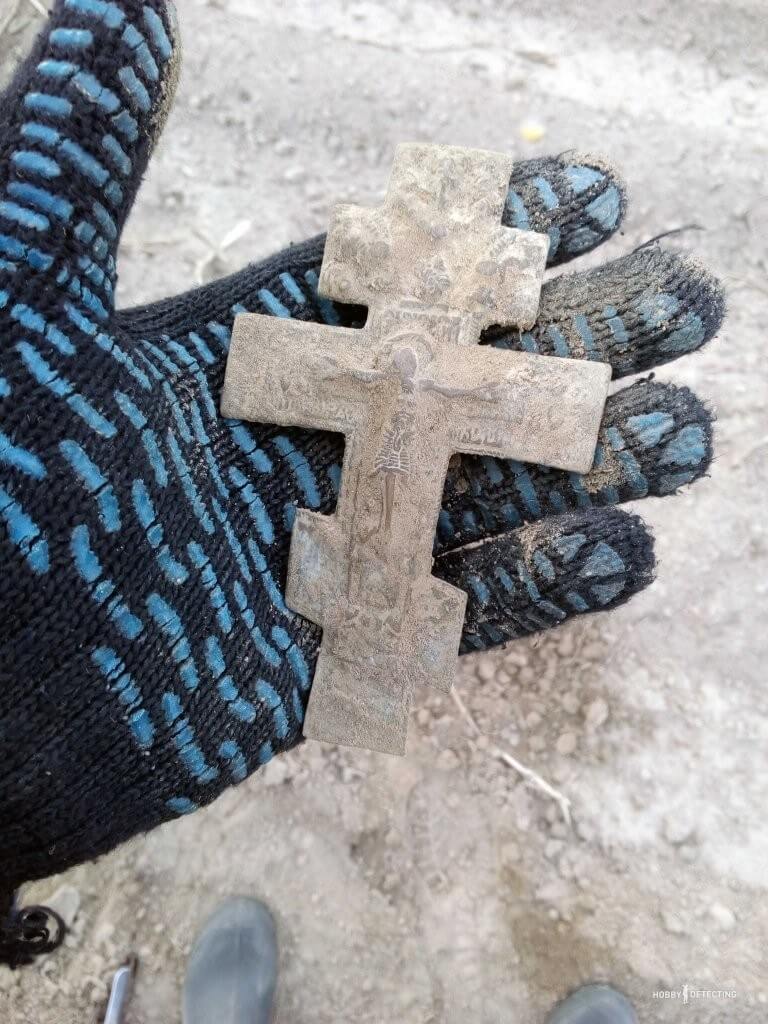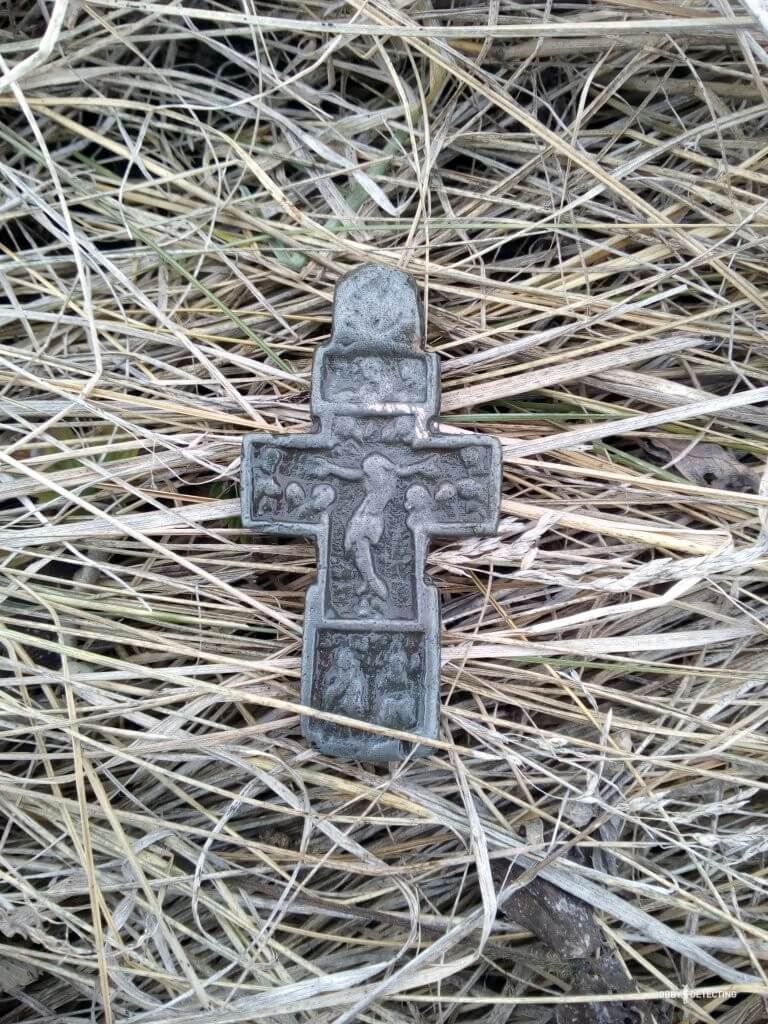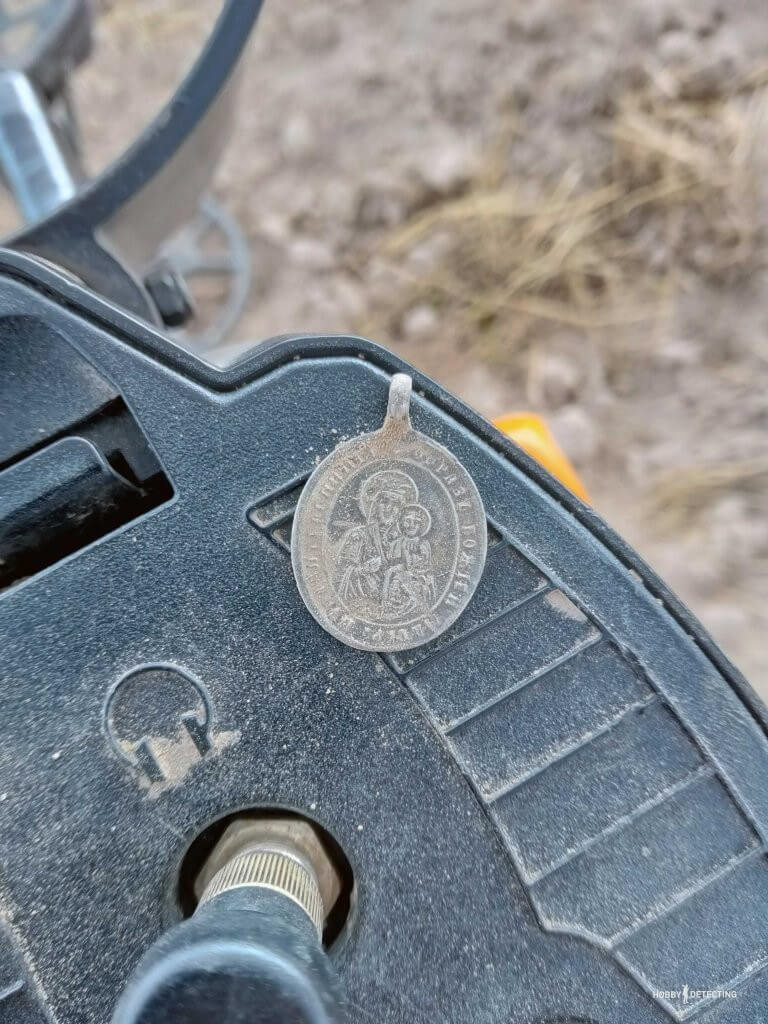Is it possible to dig, store, wear, sell crosses?
This is the question that sooner or later every lover of instrument search faces. And here, everyone makes their own decision for themselves. From a complete disgusting dislike of crosses as finds, to passionate collecting, studying and creating colorful panels.

Arguments of opponents. More precisely, these are people with good imagination and faith in the mystical powers of objects. For them, a pectoral cross is a personal item of a person who once lived; this item contains his energy, sins, curses and illnesses. Accordingly, the person who finds this item may be subject to these same ancestral curses, illnesses and other negative energy. Complete sacralization, hoax and script for a horror film.

Arguments of supporters. These are materialistic people, although many of them bury candy on the edge of the field in front of the cop. A cross is a simple, ordinary object. The same as a coin, a ring or a rusty axe. If you believe that used items carry energy, including curses from the former owner, then in this case it is necessary to close Avito, second-hand stores, used car markets and completely ban visits to historical museums. For such people, a cross is a household item with an interesting history and artistic value.

Arguments of the priests. If you type the query “Can I wear someone else’s cross” in the YouTube search bar, the results will come out. More than a dozen video blogs of Orthodox priests. The answer is the same everywhere. You can wear it because a pectoral cross is not an amulet or a magical object, as many fortune tellers and palmists assure. The cross is a symbol of faith, it only carries information that a person believes in Christ and that’s all. Therefore, Orthodox priests do not see anything wrong with the fact that people are starting to wear newly acquired crosses.

How do I feel about this topic? Initially, I was afraid of the crosses I found. There was even a case when I found a beautiful cross and left it in the car; in the morning the car refused to start. I had to take it to a car service center. What were my thoughts then??? I am a person with a very good imagination. Then I read somewhere that this way and that, crosses can be carried home, but before that they need to be kept in running water, preferably in spring water. So I began to do so, before bringing the swag into the house, I went to the street pump and there held the crosses under the pressure of water for a minute or two.

Over time, when the number of crosses I found began to number in the hundreds, I gave up on this matter. This is a question of a person’s perception and self-conviction regarding certain everyday moments. Superstitions, signs, customs, TV-3.
It happens often that I am asked to give this or that cross or icon. I give and then people naturally wonder. Is it possible, like this, to wear someone else’s cross? So, I advise them. Take this cross to the church so that it can be consecrated there. And, you know, not once in any of the churches were people denied such a ritual.

Is it possible to sell crosses??? This is where the Orthodox Church expresses a mild objection. It is clear that selling scarves with the Dynamo or Spartak logo without the permission of the copyright holders is a violation of the law. However, trade in found crosses on the Internet is booming, and therefore this area has long been of interest to all kinds of scammers. There are a lot of good fakes on sale now. This is one of the factors why prices for collectible crosses have fallen sharply in the last five years.

And, here, I just have to give one funny example on the topic of buying and selling crosses over the Internet. Three years ago, one of the regional media reported that in Arkhangelsk investigators had detained a citizen for purchasing a 14th-century pectoral cross. A collector bought a rare pectoral cross on an online site, ordered delivery by mail, waited for the package to arrive, went to the post office, received the package, happily printed it out, and was immediately detained by plainclothes officers.

The trial was quick. The collector cooperated, admitted that the cross was an archaeological object and received an administrative article “Illegal trafficking in archaeological objects.” The court ruled – a 2,000 ruble fine and confiscation of the cross in favor of the state. The cross itself cost around 15,000 rubles.
What's so funny about that? You ask. And how was such a malicious violation of the law discovered by law enforcement officers? Having bought the cross and placed an order by mail, the collector happily talked about this event on his Facebook page. Curtain, applause.
Thank you, dear readers, for your attention, subscribe to our channel and like. Comments are also welcome.

